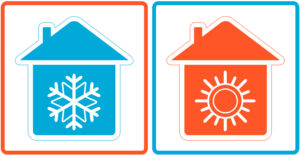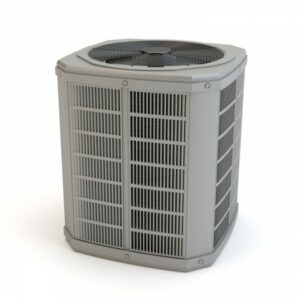How efficient is your current HVAC system? Could you be wasting valuable energy and worse—money without even realizing it? Are you looking for a more energy-efficient, cost-effective, sustainable heating and cooling solution for your home?
If so, you may be interested in learning more about heat pumps. These smart heating and cooling systems could potentially save you hundreds in utility bills each year.
Not only that, but they are also far better for the environment than traditional HVAC systems. So, how can an energy system help to save you money while helping save the environment?
This article will take you through everything you need to know, from how a heat pump works to how much installing one could save you money.
What Is a Heat Pump?
Traditional furnace or HVAC systems generate their heating and cooling powers from oil, gas, or electricity. These are typically nonrenewable energy sources, and ones that cost money to consume.
On the other hand, a heat pump is a type of HVAC system that harnesses naturally occurring energy to heat and cool your home. There are three main types of heat pumps. They can generate energy either from the air, water or ground.
Geothermal heat pumps harness heat from the ground. That heat is then transferred throughout your home through collector pipework. These types of pumps are normally integrated into the earth.
A water source heat pump uses large bodies of water such as lakes, rivers, or streams as their energy source.
The most common type of heat pump is the air source heat pump. This type of heat pump is normally situated outside the home and requires no underground piping to source its energy. For this reason, it is easier and less expensive to install than many other energy sources.
Air source heat pumps also take up relatively little space and make a minimal amount of noise when operating. This makes them perfect for placing somewhere along your home’s exterior.
If this sounds like a novel concept, it shouldn’t. In fact, you most likely already have an air source heat pump of sorts in your home. The mechanism on which air source heat pumps operate is actually exactly the same as the premise on which most refrigerators work.
Refrigerators take in warm air from the atmosphere and then expand it in order to make it cool. Air source heat pumps work in a similar manner.
Now that you know a little bit about how exactly heat pumps work, let’s take a look at how efficient they really can be.
Heat Pump Efficiency
Heat pumps are actually over 100% efficient, having the capability to transfer 300% more energy than they consume. In contrast, a gas furnace with very high-efficiency is about 95% efficient.
Compared to traditional heating systems like furnaces or boilers, heat pumps can reduce energy use by up to 50%. They can also cut your home or office heating costs by as much as 25%.
The answer as to how much a heat pump can save you will vary, depending on a few factors. This is because certain types of homes are better suited to the use of heat pumps than others.
Heat pumps work best in areas that don’t experience weather extremes and require only moderate heating and cooling needs. However, many types of heat pumps have a superior ability to dehumidify the air, compared to traditional air conditioning units. This is an added benefit they have in warmer, more humid climates.
Another factor that can affect how well your heat pump works is the type of home you have. If your home is not well insulated, it will not work as efficiently as it is designed to. If the wrong size heat pump for a home is installed, this can also lead to performance issues.
Seasonal Energy Efficiency Ratio
The seasonal energy efficiency ratio, or SEER, is the system by which cooling efficiency is rated in the US. It is calculated by dividing the total heat removed from the conditioned space during the annual cooling season by the total electrical energy consumed by the heat pump during the same season. Though this may sound like a complex mathematical equation, it is actually a simple and effective method of determining the efficiency of an energy source.
Since this method of calculating cooling efficiency came into common usage, millions of homeowners across the US have managed to save untold amounts of money on their utilities, while making their homes more environmentally friendly.
Different SEER standards apply to different climate regions. In South Carolina, which is part of the Southeast region, a minimum SEER rating of 14 is required for cooling units.
The older your HVAC is, the lower a SEER rating it is likely to have, as standards for these types of systems tended to be much lower before the SEER system was introduced in 1992.
Because of the way in which they work, heat pumps are far more efficient, and thus far more likely to have a superior SEER rating than traditional heating and cooling systems such as boilers and furnaces.
Make the Switch Today
For Lowcountry homeowners, heat pumps offer a smarter and more efficient way of heating and cooling homes. Whether you’re looking for relief from the heat in summer, or a little extra warmth in winter, a heat pump is a cost-effective and eco-friendly solution. If you’d like to learn more about heat pump efficiency for your home, we would be happy to help.
Get in touch with us today to take your first steps toward a more affordable and sustainable HVAC system.
Continue Reading
Tags: SEER
Posted in Heat Pumps | Comments Off on Can A Heat Pump HVAC System Save You Money In The Lowcountry?






